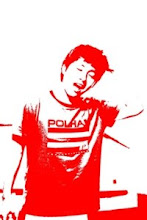No. 3
There are four sentences that characterize all of Hegel’s philosophy of history. Among these four, I have chosen to write my monograph based on the third sentence of Hegel’s philosophy of history.
1. History is the dialectical process whereby spirit comes to know itself and realizes its idea.
2. Freedom is the idea of spirit, and spirit is reason in and for itself.
3. The means of this realization or cunning of reason is the passions of the individual as both subject and object of history, and its form is the state.
4. The national spirit is a moment in the development of the world spirit, and for each such moment as for all, the owl of Minerva spreads its wings only with the setting of dusk.
It is indeed a very interesting sentence to research on because it is directly related to some famous individuals like Julius Caesar, Alexander the Great, and Napoleon Bonaparte. According to Hegel’s philosophy, these blessed minorities are the only ones who are subjected to actually enjoy the freedom. This is because they; being rulers or the “great man” that Hegel will say, make the rules and regulations according to their passion which interprets in Hegelian word, “self interest.”
But do these blessed minorities who are subjected to freedom really enjoy freedom? Are they really free? The idea of freedom and the usage of the word “free” by Hegel need a Hegelian definition in order to understand Hegel’s sentence thoroughly.
The word “freedom” is different with the British idea of liberty. According to Hegel, the word “freedom” means: acting according to the dictates of your own nature. This means that we experience freedom or should I say the blessed minority experiences freedom by practicing autonomy which means; self law making. (Hegel 2001)
And another important Hegelian concept other than freedom that I would untangle in this paper is the idea of thesis, antithesis, and synthesis. To start off with my thesis, I’ve chosen the corrupt government of Korea in 1960.
“In April 26, 1960, the first president of Republic of Korea Sungman Rhee was forced out of his office. According to the history, Sungman Rhee didn’t want to pass down his throne to other people. He wasn’t a charismatic dictator like Hitler but still the history of Korea records him as a dictator who was corrupt and misled by the Americans.
In this kind of disordered situation, the hero rose to settle the nation. His name is Chunghee Park. Born on November 14, 1917, Park was the eighth child from a family of modest means. His father was Seongbin Park and his mother was Namhui Baek. After becoming the major general of the military, Park led a bloodless military coup on May 16, 1961, a coup largely welcomed by a general populace exhausted by political chaos.
By the result of this coup, Chughee Park became the president of Republic of Korea for three consecutive terms before he got assassinated. After becoming the president, which is the antithesis against the Sungman Rhee’s corrupt leadership, President Park made a new constitution that gave him immense power and authority in comparison to other presidents in the history of Korea, “the Yusin constitution.” And this is the direct quotation about the Yusin constitution from the biography of President Park.”
“Park declared a state of emergency "based on the dangerous realities of the international situation." In October 1972, he dissolved Parliament and suspended the Constitution. In December, a new constitution, the Yusin Constitution, was approved in a heavily rigged plebiscite. It borrowed the word "Yusin(維新)" from the Meiji Restoration (Meiji Ishin;明治維新) of Imperial Japan. The new document dramatically increased Park's power. It transferred the election of the president to an electoral college, the National Conference for Unification. The presidential term was increased to six years, with no limits on reelection. In effect, the constitution converted Park's presidency into a legal dictatorship. Park was re-elected in 1972 and 1978 with no opposition.”
But the tragic part of President Park comes right after the third term in the presidential office. BBC news records his death by the title “1979: South Korean President killed.”
“1979: South Korean President killed
The President of South Korea, Park Chung Hee, has been "accidentally" shot dead by the chief of his intelligence service, Kim Jea Kyu.
Five other people, including the president's bodyguard, were also killed. The incident took place at the Korean Central Intelligence Agency's headquarters during a dinner being held by Kim in honour of the president.
A government statement revealed that an argument broke out between Kim Jae Kyu and Park's chief bodyguard, Cha Chi Chul, during which a shot was fired by Kim which hit the president as he tried to intervene.” (1979)
The history proves to us that the outcome of the antithesis, which was the coup against the corrupt government, was the synthesis which is “the Yusin constitution.” When the Yusin constitution was made in favor of President Park, the freedom that Hegel mentioned was achieved among the few blessed minorities who were serving next to the President Park.
So the Hegel’s philosophy of freedom for the minorities or individuals, who makes the rule by their self interest, seems to fit perfect when we compare this philosophy with the case of President Park and the Yusin constitution. The freedom was achieved; the spirit moved the great man and the great man suffered tragic death. But the history was able to move a little bit forward in effort of this great man, “President Chunghee Park.”
Hegel, G.W.F. (2001). The philosophy of history (J. Sibree, Trans.). Kitchener, Ontario:
Batoche Books.
Park Chunghee. (2003) Retrieved on Sep, 2, 2008
Retrieved from http://www.dictatorofthemonth.com/Chunghee/Sep2003chungheeEN.htm
Jim Sears. 1979: South Korean President killed. Retrieved on Sep 2, 2008
Retrieved from http://news.bbc.co.uk/onthisday/hi/dates/stories/october/26/newsid_2478000/
